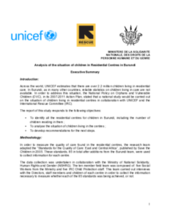Displaying 621 - 630 of 771
This monograph contains nine chapters that review and discuss the empirical literature on the development of children who have been deprived of their permanent parents
This chapter from Monographs of the Society for Research in Child Development Volume 76, Issue 4 reviews the neurobiological literature on early institutionalization that may account for the psychological and neurological sequelae discussed in other chapters in this volume.
This chapter of Monographs of the Society for Research in Child Development Volume 76, Issue 4 is devoted to the analysis of the ill effects of early institutional experiences on resident children's development.
This chapter from Monographs of the Society for Research in Child Development Volume 76, Issue 4 reviews sensitive periods in human brain development based on the literature on children raised in institutions.
Attachment has been assessed in the extreme environment of orphanages, but an important issue to be addressed in this chapter of Monographs of the Society for Research in Child Development Volume 76, Issue 4 is whether in addition to standard assessment procedures, such as the Strange Situation, the lack of a specific attachment in some institutionalized children should be taken into account given the limits to the development of stable relationships in institutionalized care.
This monograph reviews literature pertaining to children without permanent parents.
This study explores global growth suppression among children within institutional care settings.
The study explores the post-care experiences of young Jordanian care leavers. Material struggles were similar to peers internationally. The distinct difference for Arab care leavers was the cultural influence. Patriarchy, family life and collectivism impact the care leavers' experiences. A cultural dimension increases understanding of leaving-care.
The report of this study responds to the objectives of identifying all the residential centres for children in Burundi, including the number of children residing in them; analysing the situation of children living in the centres and developing recommendations for the next steps
This study commissioned by the Ministry of Gender, Children, and Community Development and financially and technically supported by UNICEF and the Better Care Network, describes the situation of children in institutional care in Malawi.


